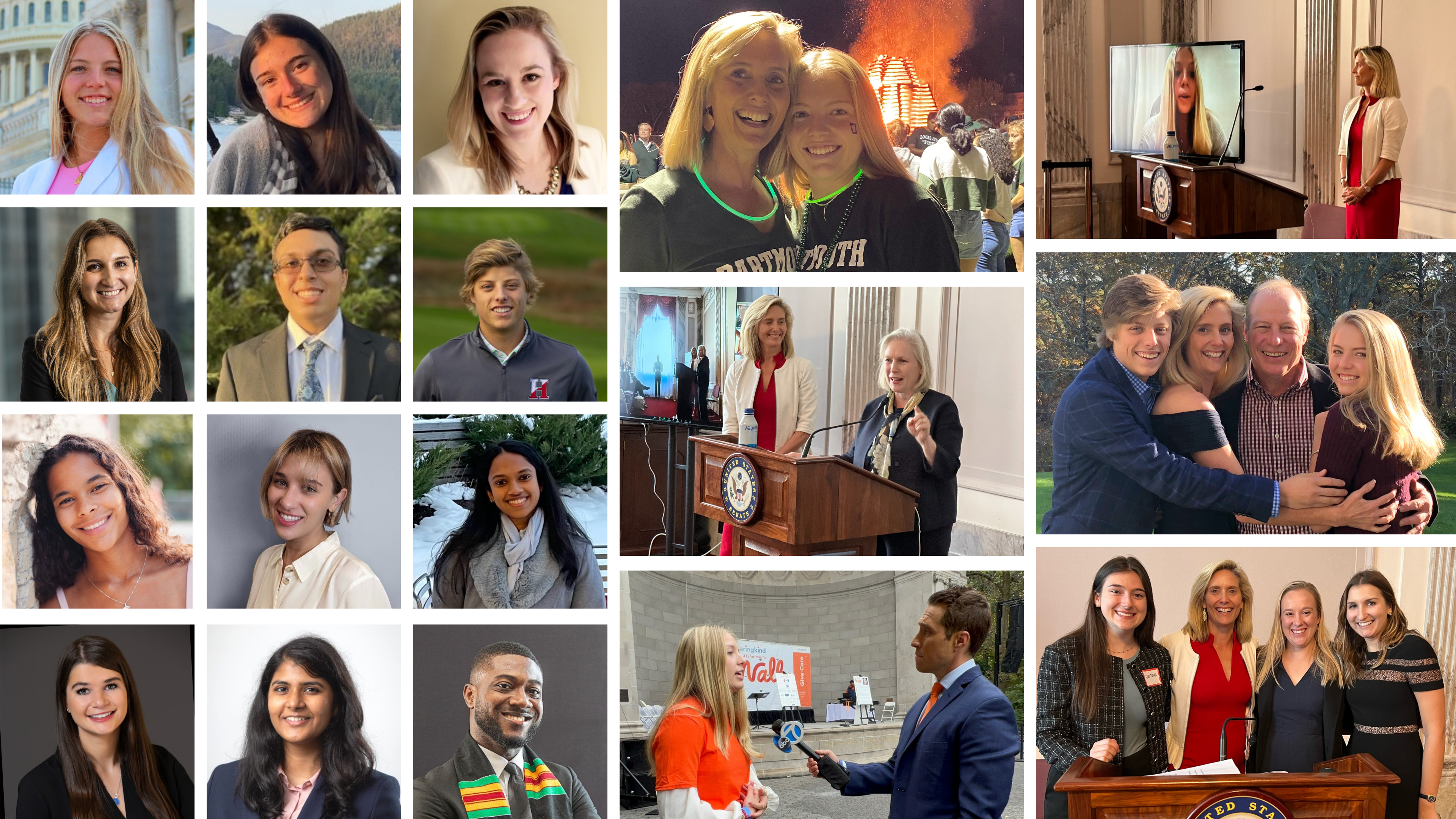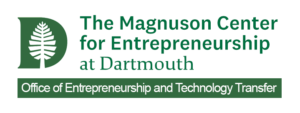Dartmouth Team Places First In Brain Health Innovation Olympics
The program was hosted by Social Impact Partners, a global coalition aimed at ending dementia, founded by a Dartmouth alum and her daughter, a current Dartmouth undergrad.

A Dartmouth team has taken first place in the Brain Health Innovation Olympics, a competition hosted by Social Impact Partners, a global nonprofit consortium founded by a Dartmouth alumnae to foster revolutionary thinking and collaboration around combating dementia and supporting brain health.
This year, teams from Dartmouth, Harvard, The University of Calgary (Alberta, Canada), The Indian Institute of Management (Calcutta, India), the Asian Institute of Management (Makati, Philippines), and Bocconi University (Milan, Italy) created plans for Brain Centers for Excellence, locations that could promote brain health over the course of the lifetime. The student participants developed and proposed strategies, products and services that could be implemented on campuses, military bases, veteran’s homes and other spaces to promote brain health and therefore reduce risk of dementia and other neurodegenerative diseases.
The students worked with 35 health care, senior living, research and policy partners from around the globe, including representatives from the Magnuson Center, Massachusetts General Hospital’s McCance Center for Brain Health, and US Aging, among many more.
While the teams were able to workshop their ideas with industry insiders, they were also helping steer conversations at the very institutions that were mentoring them.
“Everyone listens when it’s young people inspiring and coaching the leaders of the world to think differently about brain health,” said Sarah Hoit D’88, founder and chairman of Social Impact Partners.
The Brain Health Innovation Olympics align closely not only with the Magnuson Center’s dedication to social entrepreneurship, but also with Dartmouth’s Commitment to Care strategic plan, which emphasizes mental health and wellness, said Jamie Coughlin, executive director of the Magnuson Center, who served as a judge during the competition.
“The Magnuson Center and the greater Dartmouth community recognize the critical nature of brain health. Initiatives like the Brain Health Innovation Olympics highlight not only the plentiful opportunities for social entrepreneurship in this space, but also the need for person-centered and systemic healthcare innovations in brain health—one of the biggest challenges facing our society.” Coughlin said. “Dartmouth—as always—is poised to be a leader in this space.”
Building brain health, bite by bite
This year’s Dartmouth team was led by Caroline Kupersmith Tuck ’25, who was drawn to the school’s Center for Health Care because she wants to work in business and have a pro-social impact.
“Senior care is a large and growing market and an area of unmet need,” Kupersmith said. “There’s a real opportunity to do well by doing good.”
The team, which included students Alex Kupry Tuck ‘25, Harshitha Rayapati Thayer ‘25, and Brinda Sai Thayer ‘25, developed a concept that paired intergenerational connections around nutritious meals. They conducted interviews with family caregivers of people with dementia, and received industry feedback from senior living facilities and Sodexo, a global food management company serving hospitals, schools, senior living facilities and more that serves more than 100 million customers daily.
“It has been an incredible experience to have the opportunity and resources to go through an entrepreneurial process and participate in a pitch competition,” Kupersmith said. “Having this exposure to the industry allowed us a deeper understanding of how to serve the demographic, and where those pockets of opportunity are. That will definitely impact my career path.”
The work in 2024 compliments that accomplished by last year’s Dartmouth team, led by Samantha Bevins D’25, daughter of Sarah Hoit and Legislative Director at Social Impact Partners.
That team–comprised of Vedant Tapiavala ’26, Gabi Novak ‘25, Leila Ambrus ‘25, Julia Papanastou Tuck ‘23, Megan Lynch Tuck ‘23, and Wesley Bevins St. Lawrence University ‘24– met with the leadership of Sodexo to help develop a marketing plan to convey the value and importance of brain healthy foods. The plan not only won the 2023 Innovation Olympics, but was implemented by the company and spurred many more discussions about brain health at this global giant.
“The results of the Innovation Olympics are powerful,” said Marc Plumart, chief growth and commercial officer at Sodexo. “We look forward to incorporating these concepts into our work as we partner with Social Impact Partners to bring innovation and impact to this critical topic.”
Dartmouth students were important voices at the SIP Global Brain Health and Strategy Meeting held in November 2023 in Washington D.C. At that meeting, students worked alongside key legislators, led by Senator Kirsten Gillibrand D '88, who are taking the lead on critical topics such as states’ Strategic Plans on Aging. Also present were Senator Cory Booker, advocating for Food as Medicine, and other legislative, corporate, nonprofit, science, and youth leaders collaborating to create change.
Social Impact Partners plans to host future D.C. summits to continue impacting federal and state policy on brain health and aging.
A deeply personal connection, with global reach
The topic of brain health and dementia is deeply personal to Hoit and Bevins. Hoit’s husband, Scott Bevins, died in 2022 from dementia at just 69 years old.
“Social Impact Partners is a complete correlation with our grieving process, and it’s our most direct way to leave a legacy for him as well,” said Bevins. “We won’t stop until no other family goes through what we went through.”
Scott and his family were initially told that he had early onset Alzheimer's. After Scott’s death, they donated his brain to The Harvard Brain Tissue Resource Center at McClean Hospital. Research conducted there revealed that Scott didn’t have Alzheimers, but likely had two other brain diseases: Lewy body dementia and Frontotemporal dementia.
“A lot of the organizations focused on dementia fund Alzheimer's research specifically, whereas Social Impact Partners wants to focus on spreading the world about all types of dementia and neurodegenerative diseases,” Bevins said.
Through their personal connection, Hoit and Bevins learned just how widespread the issues around dementia and brain health are.
“This story is everybody’s story,” Hoit said.
If current diagnostic rates continue, there will be 150 million people with dementia by 2050. And yet, research suggests that 70-80% of brain illnesses can be positively impacted or prevented through healthy lifestyle changes.
Delivering those solutions not only addresses a looming humanitarian crisis, but provides a massive economic opportunity—something Hoit hopes both business leaders and student participants take away from the Innovation Olympics.
“You can walk out the door and follow your passion to where you can have the most impact, and create double bottom lines,” she said. “Impact begets change, which is valuable in so many different ways.”
Ultimately, that could help millions of people live healthier, longer lives, and spare their families the loss that Hoit and Bevins have experienced.
“What we’re building is not just for Dartmouth, but a model for the world,” Hoit said.

